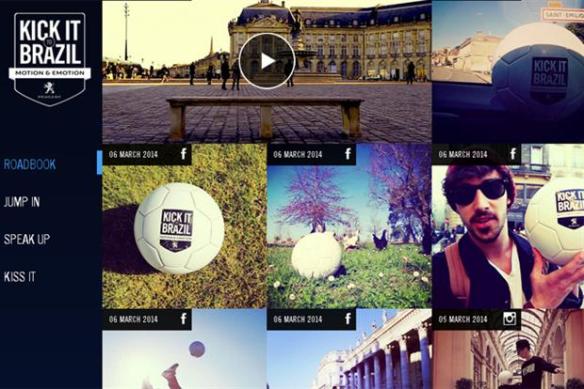As the Marketing Magazine reports, FIFA has issues a warning to brands looking to boost sales through World Cup-related marketing, stating that non-sponsors should “refrain from attempts to free-ride” on interest in the tournament. See the original article here.
The warning follows the launch of a digital campaign by Peugeot called #KickItToBrazil, which will see the carmaker transport a football from Paris to Brazil via 30 countries, arriving at its destination on the eve of the start of the World Cup. Consumers will be able to track the progress of the football through dedicated Facebook and Instagram pages using the hashtag #KickItToBrazil, as well as via a microsite. Peugeot already denied any ambush plans and said it is looking to create a “strong link” between the brand and “multiple generations worldwide”, in particular outside Europe where the company said it is experiencing “strong growth”.
The company also hopes to raise awareness of its Forestry Carbon Sink sustainability project in Brazil, through which it has already planted two million trees representing 50 different species.
FIFA declined to condemn the campaign specifically. However, the organisation has warned that only sponsors may seek to capitalise on interest surrounding the tournament, which kicks off on 12 June. A FIFA spokesperson told Marketing: “We ask companies to respect the exclusivity to brand association with the FIFA World Cup that FIFA has granted to its commercial affiliates, by avoiding activities that might create a commercial association.” “The contribution of FIFA’s commercial affiliates is vital to the success of the 2014 FIFA World Cup and we therefore ask companies to refrain from attempts to free-ride on the huge public interest generated by the event.”
The practice of “ambush marketing” hit the headlines in during the last World Cup in South Africa in 2010, when FIFA initiated legal action against brewer Bavaria, after it employed 36 women to attend a match between the Netherlands and Denmark, in orange clothing. FIFA subsequently dropped the case after the two parties agreed an out-of-court settlement.
Official sponsors of the World Cup in Brazil include Budweiser, McDonald’s, Johnson & Johnson and Castrol. More about FIFA, its corporate sponsors and the marketing rights soon!






